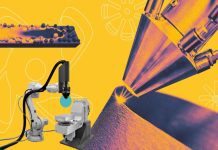
Cognizant announced enhancements to its Cognizant Neuro AI platform, designed to help enterprises identify, prototype, and scale artificial intelligence (AI) use cases.
The upgrades aim to improve decision-making processes and open new revenue opportunities for businesses across various industries, the company said in a media release.
A study conducted by Cognizant in partnership with Oxford Economics found that 76 per cent of enterprises are seeking to generate new revenue streams through AI but face difficulties implementing cross-enterprise solutions.
The report also revealed that 70 per cent of businesses feel they are not progressing fast enough in deploying AI effectively.
The enhanced platform addresses these challenges by offering tools that allow business leaders to identify relevant problems, generate synthetic data or import anonymized data, and develop AI models within minutes.
It also provides predictive insights to guide decisions and assess the impact of various use cases.
The upgraded platform, now available to Cognizant clients, supports a range of industries, including healthcare, agriculture, and finance.
It has already been used in multiple pilot projects and is designed to help organisations apply AI across operations such as inventory management, fraud detection, and staff allocation.
Murali Vridhachalam, head of Cloud, Data, and Analytics at Gilead Sciences, noted the platform’s potential to streamline AI adoption.
“Many enterprises struggle to apply AI beyond predicting outcomes because solving real business problems involves navigating numerous scenarios with conflicting priorities. The Neuro AI platform provides a comprehensive framework to deploy AI use cases across various applications and unlock new business opportunities.”
Bayer Crop Science also tested the platform’s capabilities for agricultural decision-making.
“Agriculture is one of the most challenging professions, requiring intricate decision-making amid environmental uncertainties and the need to balance social, economic, and environmental objectives,” said Patricio Salvatore La Rosa, head of Decision Science at Bayer Crop Science.
He explained, “We have directly tested several foundational components of Cognizant Neuro® AI, especially LEAF, which has empowered us to navigate complex scenarios effectively. By harnessing the collaborative capabilities of specialized Gen AI agents, we look forward to addressing intricate decision-making challenges in a reliable, transparent, and trustworthy manner.”
The enhancements include new features such as Opportunity Finder, a tool that uses large language models (LLMs) to identify potential AI applications for businesses.
A Model Orchestrator allows users to prepare data and apply machine learning models through a drag-and-drop interface.
The platform uses multi-agent AI technology to predict outcomes and prescribe decisions, offering businesses transparency and scalability in their AI efforts.
Babak Hodjat, chief technology officer of AI at Cognizant, emphasised the platform’s focus on decision-making.
“Businesses are struggling with how and where to apply AI to solve business problems, and that’s why we’ve seen most AI use cases limited to prediction-based outcomes or single LLM chat-based solutions.”
Analysts are increasingly focusing on multi-agent AI as a way to solve complex business challenges.
Gartner has reported that collaborative AI agents can achieve more adaptable and scalable results by working toward shared objectives.
Neil Ward-Dutton, vice president of Automation, AI, and Analytics at IDC, said multi-agent tools can accelerate the adoption of AI:
He noted, “As enterprises start to try to approach AI strategically, and move beyond experimentation, they are crying out to understand how to identify and prioritize use cases. Providers that can use technology to help accelerate the identification of use cases, and then use that technology to test and scale implementations, will be in a strong position.”





















